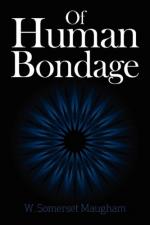|
This section contains 1,160 words (approx. 4 pages at 300 words per page) |

|
SOURCE: "The Redundant Gentleman," in Old School Ties: The Public Schools in British Literature, Syracuse University Press, 1964, pp. 169-219.
Reed is an American educator, critic, and poet. In the following excerpt, he discusses the impact of Philip's schooling on his character—a schooling intended to make him a gentleman but which in practice left him ostracized and self-conscious.
In Maugham's Of Human Bondage (1915), Philip Carey, an up-to-date Ernest Pontifex, in his rebellion against the cant of his elders, reacts strongly against his school as well as his family. He leaves school to finish his education at Heidelberg, hoping for greater intellectual and imaginative freedom. Of Human Bondage is typical of the twentieth-century version of the Bildungsroman. Philip follows a familiar pattern in his progress toward enlightenment. At school he is unhappy, suffering humiliation at the hands of his schoolmates for a physical deformity. Philip becomes introverted, and his...
|
This section contains 1,160 words (approx. 4 pages at 300 words per page) |

|


